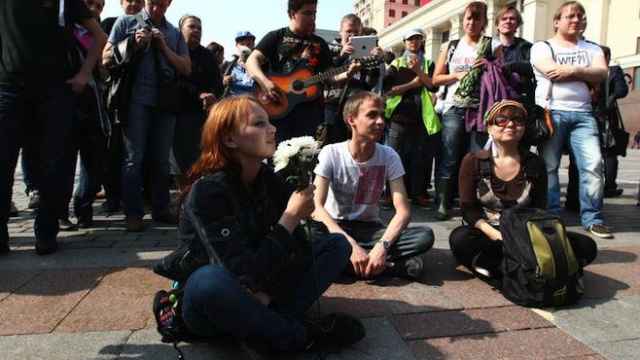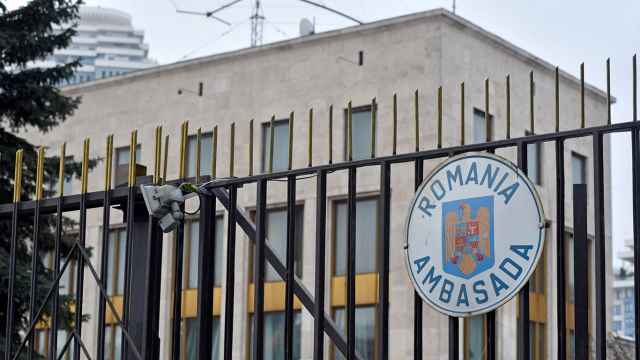Пакет: package
One of the tricky places in Russian is the cognate zone: that place where English andRussian words that sound alike and have the same root hang out and dream up ways to confuse you. These so-called cognates are sometimes also false friends and fair-weather friends.
I've been thinking about this because of a пакет (package) that has been in the news every day for several weeks in Russia. This is пакет Яровой (Yarovaya's package): пакет антитеррористических законов (a package of anti-terrorist laws).
In English we can say that — a package of laws — although English speakers are more likely to talk about aid packages, packages of anti-terrorist measures, or package deals and package tours. In this context пакет-package are fair-weather friends: sometimes they match up and sometimes they don't.
Russians don't talk about package tours — those are путёвки — but they can gather lots of things into their пакеты, like documents: К заявке прилагался необходимый пакет документов (The required package of documents was submitted with the application.) Or votes: В парламенте у партии был блокирующий пакет голосов (The party had enough votes to block legislation.) Or guarantees: Они создали неотразимый пакет гарантий для иностранных инвесторов (They came up with an irresistible package of guarantees for foreign investors.) Or perks: Предоставление им доли собственности как части пакета компенсации нередко является достаточной "приманкой" (Giving them an equity share as part of their compensation packages is often enough of an inducement.) And, of course, stocks: В итоге ни у кого нет контрольного пакета акций (In the end, no one has the controlling block of shares.)
Пакет-package are false friends in the grocery store. Пакеты are what you take your groceries home in— bags or sacks. They can be the ecologically sound бумажные пакеты (paper bags) or the environmentally damaging полиэтиленовый пакет, a phrase Russians use all the time. English speakers are not likely to say "polyethylene bag." In fact, you'd be lucky to find an English speaker who knows what a polyethylene bag is. It's just a plain old plastic bag.
And finally the Russian пакет can be пакет молока (a container of milk), пакет с яблоками (a sack of apples) or even something very nasty, like пакет с героином (a bag of heroin).
There is one other tricky packaging issue for non-native speakers of Russian: when to use пакет (package, bag) and when to use пачка (pack). I'm struggling to determine the rule. Пакет is a sack you fill or a container that is not a bottle but holds liquids: пакет молока, морса, сока (container of milk, fruit drink, juice).
Пачка is smaller and usually contains one kind of thing, like пачка сигарет (a pack of cigarettes). Or it describes a bunch of something held together: В ящике мы нашли пачку старых писем (In a drawer we found a bundle of old letters). Or: Он хватает толстенную пачку рублей (He grabs a thick wad of bills.)
But in the grocery store, пачки aren't small at all. They never hold liquids like пакеты. They are used with almost any pre-package food, from пачка риса (bag of rice) to пачка чипсов (bag of chips).
And then there's one more пакет, so tiny that it's the diminutive пакетик. It's what you use to make are freshing drink: пакетик чая (teabag).
Definitely time for a cuppa.
A Message from The Moscow Times:
Dear readers,
We are facing unprecedented challenges. Russia's Prosecutor General's Office has designated The Moscow Times as an "undesirable" organization, criminalizing our work and putting our staff at risk of prosecution. This follows our earlier unjust labeling as a "foreign agent."
These actions are direct attempts to silence independent journalism in Russia. The authorities claim our work "discredits the decisions of the Russian leadership." We see things differently: we strive to provide accurate, unbiased reporting on Russia.
We, the journalists of The Moscow Times, refuse to be silenced. But to continue our work, we need your help.
Your support, no matter how small, makes a world of difference. If you can, please support us monthly starting from just $2. It's quick to set up, and every contribution makes a significant impact.
By supporting The Moscow Times, you're defending open, independent journalism in the face of repression. Thank you for standing with us.
Remind me later.







